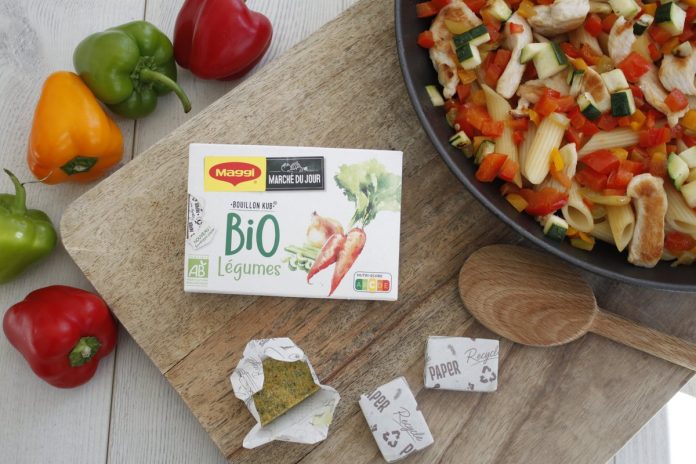Maggi has always been one of the the favorite products from the Nestle brand, which is very popular among the customers. It has also been the first major brand to use recyclable paper packaging for the packaging of individual bouillon cubes for its organic collection in France. This has now become the newest breakthrough that has led to more Nestle paper packaging products.
Nestle’s invention consists of a modern approach that is coated with a paper. Until now, the bouillon cubes have been covered in a multi-layer lamination that contains aluminum.
According to Agnes Lalanne, a global leader in the Nestle Cooking Aids group, “We want to provide all customers with both healthier and more sustainable choices. That’s why we’re proud to bring the recyclable paper packaging to a favorite like these Maggi organic bouillon cubes.
The paper used to produce this packaging kit comes from sustainable sources, i.e. pulp and paper mills, which are certified by the Forest Stewardship Council ( FSC). A further phase in Nestle’s pledge to make the packaging of goods recyclable or reusable by the end of the year 2025 is part of the Support of Forest Certification program and its creation marks. The organization is considering environmentally sustainable goods that will allow them to reach a waste-free future.
According to Torsten Pohl, who is the head of the Nestle Product Technology Center for Food in Singen, Germany, the challenge faced by our team was the development of foldable, durable sealable materials, which also provide an adequate barrier to make the product healthy and fresh, so that it can also be easily recycled.
In the run-up to the launch, the Nestle team is also working on the refurbishment and upgrade of existing packaging machines, which enable them to use new paper wrapping to operate on them.
Maggi itself consists of a range of items, some of which are bouillons, soups, seasonings, and sauces to be sold in almost 90 countries. As the company sources products from the local area that are likely to ensure that its bouillon cubes provide their consumers with authentic tastes and textures while staying compatible with regional preferences and cooking styles. These cubes are fortified with essential micronutrients in certain countries, such as iron deficiency.

